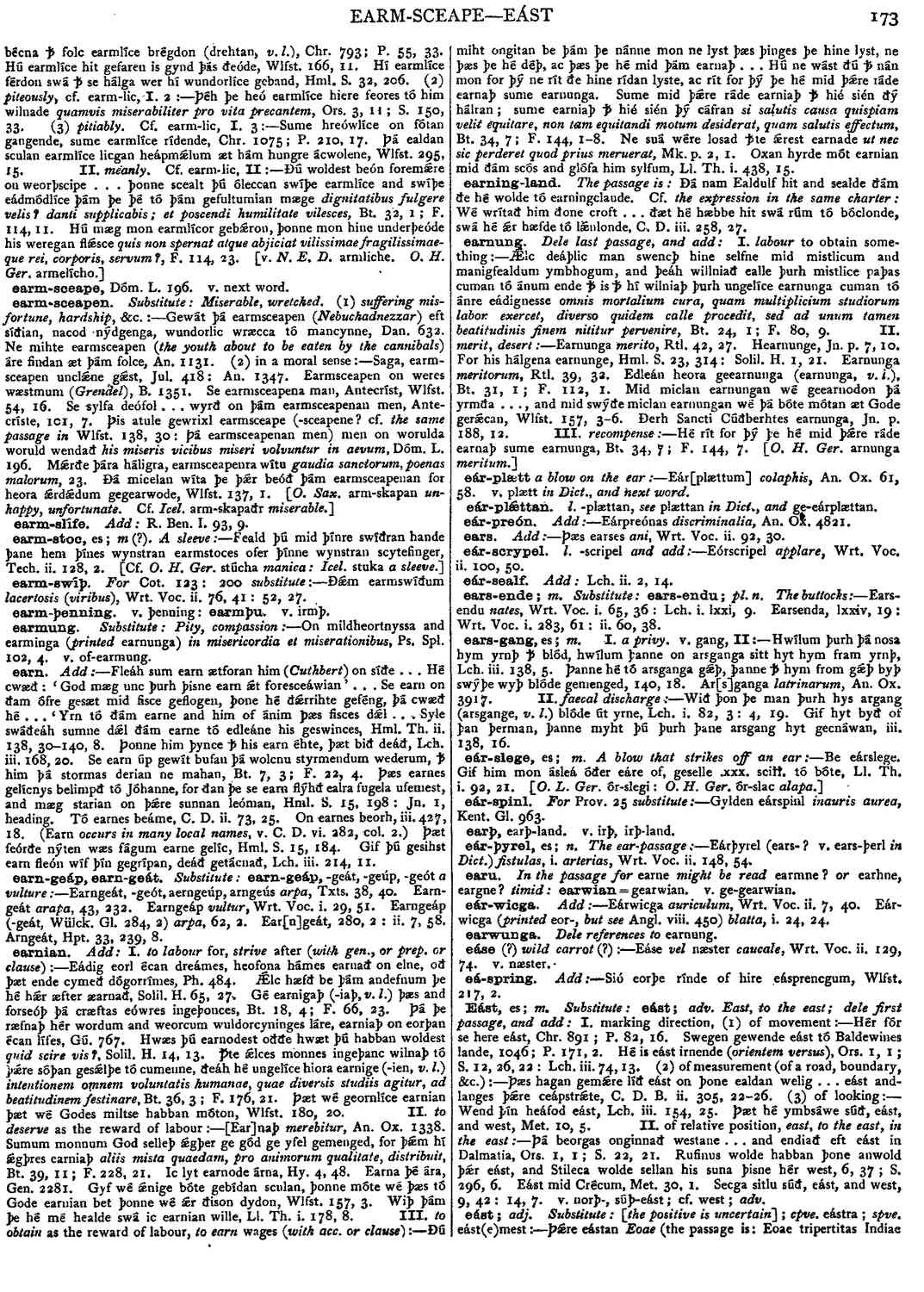Eást
- noun [ masculine ]
- adverb
-
Hér fór se here eást,
- Chr. 891; P. 82, 16.
-
Swegen gewende eást tó Baldewines lande,
- 1046; P. 171, 2.
-
Hé is eást irnende (
orientem versus
),- Ors. 1, 1; S. 12, 26, 22: Lch. iii. 74, 13.
-
Þæs hagan gemǽre líð eást on þone ealdan welig . . . eást and*-*langes þǽre ceápstrǽte,
- C. D. B. ii. 305, 22-26.
-
Wend þín heáfod eást,
- Lch. iii. 154, 25.
-
Þæt hé ymbsáwe súð, eást, and west,
- Met. 10, 5.
-
Þá beorgas onginnað westane . . . and endiað eft eást in Dalmatia,
- Ors. 1, 1; S. 22, 21.
-
Rufinus wolde habban þone anwold þǽr eást, and Stileca wolde sellan his suna þisne hér west,
- 6, 37; S. 296, 6.
-
Eást mid Crécum,
- Met. 30, 1.
-
Secga sitlu súð, eást, and west,
- 9, 42: 14, 7.
- v. norþ-, súþ-eást; cf. west; adv.
Bosworth, Joseph. “Eást.” In An Anglo-Saxon Dictionary Online, edited by Thomas Northcote Toller, Christ Sean, and Ondřej Tichy. Prague: Faculty of Arts, Charles University, 2014. https://bosworthtoller.com/43480.
Checked: 0